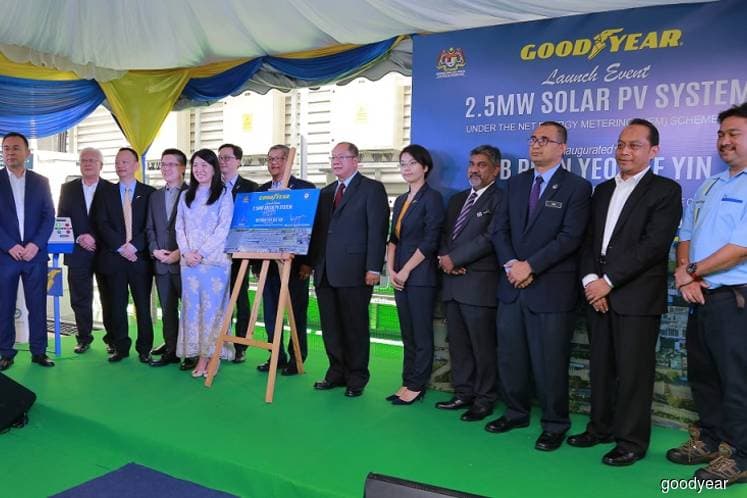
KUALA LUMPUR (July 23): Sustainable Energy Development Authority (SEDA) Malaysia is in the midst of completing the second biogas e-bidding exercise and inaugural e-bidding for small hydro power systems, according to Minister of Energy, Science, Technology, Environment and Climate Change Yeo Bee Yin.
In a statement today, Yeo said the aim of the e-bidding process is to facilitate price discovery for renewable energy (RE) generated from biogas and small hydro resources, through healthy competition.
The inaugural e-bidding exercise for biogas was carried out in the last quarter of 2018 and SEDA is into the second e-bidding for 2019. In the same period, it will be conducting its inaugural e-bidding exercise for small hydro.
SEDA is the authority and implementer of the feed-in tariff (FiT) scheme.
In its statement, it said it had approved 12,540 FiT applications as at end June 2019,, with a total capacity of 1,744.38 MW (consisting of 34.6% small hydro, 25.4% solar PV, 23.5% biomass, 14.4% biogas and 2.1% geothermal).
However, during the same period, total RE projects achieving commercial operation amounted to 10,254, with a total installed capacity of 621.96 MW (61.8% solar PV, 15.4% biomass, 11.5% biogas and 11.3% small hydro).
As a result of the FiT scheme which was first introduced in 2011, SEDA said the estimated capital investment for the RE project is RM9.8 billion, with a projected CO2 emission avoidance of 3.3 million tonne (up to 2023).
Earlier today, Yeo had launched Goodyear’s solar PV system — the largest recorded under the net energy metering (NEM) scheme in the country. Located at Shah Alam, the PV system is rated 2.5 MWp and is expected to meet 11.5% of Goodyear’s daily electricity consumption.
Yeo said Goodyear’s PV system is exemplary of a rising tide of corporates who have strong commitment to meeting their environmental, social and governance obligations.
The concept of NEM is that the energy produced from the installed solar PV system will be consumed first, with excess energy exported to Tenaga Nasional Bhd.
NEM was first implemented at the end of 2016 and the total approved capacity as at end 2018, was 27.81 MW.
Since January 2019, the NEM scheme was enhanced to allow surplus solar electricity to be sold on a 1-on-1 basis. In the first six months of 2019, SEDA had approved 20.72 MW of NEM of a total quota allocated of 500 MW, which is valid until end 2020.
Yeo said the government’s target is to achieve 20% of RE in the national installed capacity mix (excluding large hydro), by 2025. As at end 2018, it had achieved 6%.